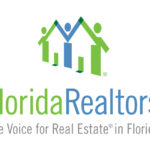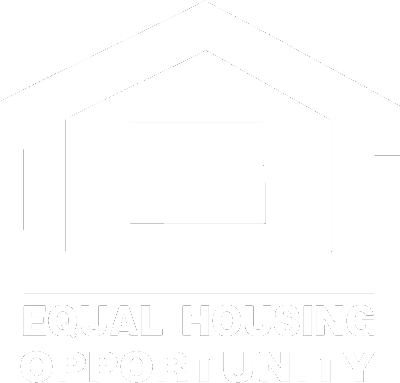MIAMI – Some people trying to buy a condominium in South Florida but getting mysteriously rejected for a mortgage could be in for a jolt: The reason they can’t get a loan may be that the condo is on a secret quasi-governmental blacklist.
News media reports and data leaks to a pair of law firms in New England and Fort Lauderdale have now confirmed what some in the condo industry suspected: that Fannie Mae, one of two federally chartered companies that help determine who qualifies for home mortgages, has for at least two years maintained a confidential database of condo buildings, including hundreds in Florida, that it won’t back for loans, typically because of maintenance or financial issues.
Inclusion in the database can make it next to impossible for owners and associations to get a traditional conforming mortgage, to refinance or to obtain loans for repairs at normal rates or terms, experts in the field say. Because Fannie Mae has insisted on confidentiality from lenders, the rejected applicants usually can’t find out why they have been denied.
The blacklist appears to have grown substantially since Fannie Mae enacted stricter requirements for condos to qualify for loans and mortgages that it backs a year after the Champlain Towers South collapse in Surfside in 2021, as associations across Florida and the rest of the country struggle to catch up with delayed maintenance and develop plans to address needed critical repairs.
The two law firms that have obtained the secret database say they will make it possible for condo owners and board members to find out if their buildings are on it, and why. They have created a website where verified owners and property managers can ask the firms to check if their condo is blacklisted, and, if they choose, get help from attorneys in finding out the reason. The Boston firm, Allcock Marcus, has said it received the database from a third-party source and receives updated versions every couple of months.
The firms said they won’t release the list publicly because doing so could harm the condos’ reputations and potentially lower property values, creating liability issues. That’s possibly why Fannie Mae had not made the list public, though no one is certain because the corporation has not specified its reasons.
After initially stonewalling, Fannie Mae has recently acknowledged the list’s existence. Fannie officials say they will create a searchable database for use by owners and associations, though it won’t be online until the third quarter of 2024.
In the meantime, critics say, frustrated condo owners, associations and buyers may be left in limbo.
“The thing that bothers me is that people can’t solve these problems if they don’t know they exist,” said Leigh Katzman, a founding partner at Katzman Chandler in Fort Lauderdale, the second law firm behind the new website. “But the fact that Fannie Mae keeps it a secret, that injures the people that live in these buildings in a big way.”
The existence of the blacklist, first exposed by the Orange County Register newspaper in California earlier this year and more recently confirmed by the Boston Globe, has stunned a South Florida condo industry already reeling from the consequences of the Surfside collapse, which prompted not only the more-stringent scrutiny by Fannie Mae and its federally chartered twin, Freddie Mac, but also sweeping reforms by the Florida Legislature.
Transparency questions
Dennis Eisinger, a veteran condo attorney in Hollywood, said associations in buildings where owners or buyers are denied loans ought to already know if they’re not in compliance with state or Fannie or Freddie requirements. But he said the loan-approval process should not be shrouded in secrecy, noting associations have no way to tell if information Fannie Mae is relying on for including condos on the list is even accurate.
“I’m a little surprised how a quasi-governmental agency is not completely transparent. They really should be,” Eisinger said. “It’s incredible that this issue of secrecy is there.”
It’s unclear when the list was created, but Eisinger believes it was in 2021 after the Surfside collapse.
According to the Globe, the Fannie Mae list included 1,770 properties across the country in May. The number ballooned to 2,308 by October, with the lion’s share — nearly 35 percent, or around 800 properties — in Florida. Katzman said about 250 condos in Miami-Dade and Broward counties are on the list.
Fannie Mae and Freddie Mac, which are overseen by the Federal Housing Finance Agency, are semi-independent corporations created by Congress to make it possible for Americans to buy homes with affordable financing. Together, the corporations back an estimated 70 percent of residential loans across the United States.
Both buy home loans and mortgages from lenders and package and sell them as securities, reducing the risk, and thus the costs, for the private lenders. They both also have some strict requirements regarding finances and physical conditions at condos and coops to ensure the investments are secure. Most banks won’t lend if a condo doesn’t meet Fannie or Freddie standards, because that means the agencies won’t back the loans.
Structural, finance standards
Typical reasons why the corporations won’t back mortgages at a condo range from inadequate reserves or insurance, structural or construction issues, to too many delinquencies and too high a percentage of rentals.
Last year, both Fannie and Freddie enacted expanded requirements for condos to qualify for lending in the wake of the Surfside disaster. The upshot was that buildings facing certain critical building issues would no longer qualify. The new rules also require condos to fill out extensive forms detailing building conditions and financing before mortgages or other loans can be approved.
In April, the Register newspaper published a story detailing the existence of a secret Fannie Mae spreadsheet distributed to lenders. Officially called “Condo Unavailable Projects and Phases Report,” it lists buildings not eligible for its backing and labels the information on it confidential and proprietary.
Even when associations manage to find out they’re on the list, critics note, there is apparently no way to appeal or a clear process to get off it.
Freddie Mac also classifies condo properties as ineligible for its backing, but does not circulate a list, media reports say. Instead, it provides bankers an app to verify whether a property qualifies for Freddie Mac-backed lending.
Apparently as a result of the new post-Surfside information requirements, the Fannie blacklist grew quickly. Many older condos in South Florida and elsewhere are known to have long put off needed maintenance and repairs or have failed to require sufficient financial reserves to cover needed work.
Secrecy, not standards, the questions
A reform bill passed by the Florida Legislature last year now requires older condos to periodically prepare studies of needed maintenance and set aside reserves to cover the work. Starting in 2025, reserves must be set aside to cover 100 percent of anticipated structural work — a standard that some critics fear many buildings with lower-income owners can’t afford to meet.
Critics say they fault Fannie Mae not for the stricter standards, which many believe were overdue, but for not making its determinations clear and available to condos so they can address them.
“There are things that weren’t done that needed to be done,” Katzman, the Fort Lauderdale lawyer, said. “We believe that what we’re seeing now is a process of catching up with what’s been happening. It has caused the list to become larger, and it will become even larger. The people who have lived in condominiums in last the 20 years have paid too little. Now the next owners are going to pay too much.
“Many associations aren’t prepared for it. There’s a black storm coming.”
In response to a wave of criticism prompted by the news reports, the Federal Housing Finance Agency said last week that both Fannie and Freddie will make the process significantly more transparent. According to the agency, Freddie Mac will make it easier starting early next year for associations to find out if their buildings qualify for its financing, and will establish an appeal process for those that do not.
“FHFA is committed to ensuring and prioritizing the financial and physical safety of borrowers and occupants of condominiums and cooperatives to support sustainable homeownership,” the federal housing agency said in a statement.
In the meantime, Katzman said his firm and their Boston partners can help affected condos and unit owners understand why they’re on the list, but must sign a limited agreement first so the lawyers don’t run into liability issues. The firms can also further help them navigate their way off the list.
But Eisinger and other experts point out that, by creating the blacklist, Fannie Mae has created a Catch-22 for condos. If they haven’t made needed repairs or set aside sufficient money to cover the work, they now can’t get Fannie-backed loans or financing to make the repairs. That means they will face having to pay more at a time when interest rates are high and many condos have been “pummeled” by skyrocketing property insurance rates, Eisinger and Katzman said.
That can put individual owners who are not affluent in a literally impossible situation, Katzman said.
“If I’m an owner in a building that’s blacklisted, and I’m hit by assessment for $10,000, normally I can refinance my unit. But now I can’t do that. Or else I sell the unit, but now I can’t sell, either,” he said. “It’s like a perfect storm.”
© 2023 Miami Herald. Distributed by Tribune Content Agency, LLC.
©Florida Realtors®
Source link



